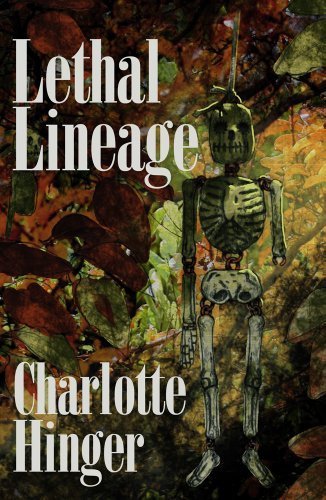Kae Cheatham's Blog: Whoa! Another Author?, page 15
March 22, 2011
New Book Release Dates

It's Spring, and many publishing houses are releasing their new titles. I have several friends whose books are due out soon. My friend Linda Leaming, who wrote Married to Bhutan, is rightfully excited about the April 1st release date for her book. She has encouraged people to preorder the book as preorders are suppose to push interest in a title. So I popped over to Barnes and Noble online to do just that—to preorder—but no need; the book is already in stock and on sale—AT A SIGNIFICANT DISCOUNT. Gasp! The same is true at Amazon; Amazon even offers a Kindle version, at a few pennies less than the discounted DTB.
Doesn't a release date mean anything?
I decided to check on other friends' titles. Charlotte Hinger's second mystery for Poisoned Pen Press, Lethal Lineage...I got the date wrong. It was released March 1st, but by golly, it's at a reduced price too.
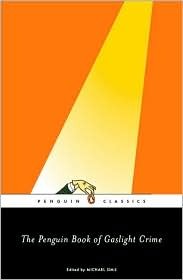
Next stop, Michael Sims. I know his schedule includes readings for one of his Penguin Classics, The Penguin Book of Victorian Women in Crime, that came out in January, but The Story of Charlotte's Web is not to be released until June. Or is it? Ah! 7 June is the release date and, yes, preorder is still in place at a reduced price, no less.
And these discounts before the book is officially on the market—do the publishers arrange for that? It really doesn't seem economically sound, but maybe I'm missing something. At least the authors take isn't reduced.
To drum up a bit more business, I decided to go back to B&N and post the review I wrote for Leaming's book, but, sadly, that wasn't possible. I hadn't purchased the book from them, so I can't write a review. Of course, B&N didn't tell me that, they just kept declining my "submit" and I assume that's why (I read all the rules and directions, really I did!).
I'm making a trek to town tomorrow and will stop by my local independent bookseller to "preorder" my books. That should generate interest and improve sales demographics. And as for release dates...I'll put no stock in those anymore.
March 20, 2011
The Girl Who Fell From the Sky - Review

I borrowed this book from my Public Library, but I might well buy a copy for my home shelves.
This intricate and well-conceived novel by Heidi Durrow gives a different glimpse into the plural American society. Beginning in 1982, with a six year story line, the reader learns of Rachel (told in first person) who has suffered a horrific family accident that leaves her the only survivor. At age eleven, she is taken from Chicago to Portland, Oregon to live with her paternal grandmother. She is suddenly part of a black community. Not long before this, Rachel had made another move: with her Danish mother and two siblings from a European military environment to Chicago: her black GI father was left behind.
Rachel's emotional assimilation to both changes defines her intelligence and strong character. She is intent to make herself a new girl. On page 10, Rachel reports: "When something starts to feel like hurt, I put it in this imaginary bottle inside me. It's blue glass with a cork stopper." Everything goes in there, joining the major event that has her being a "new girl."
The reader learns of this event through back story with fascinating characters. Presented in third person, each character name is the chapter heading: Laronne, Jamie (who becomes Brick), Nella (Rachel's mother), Roger (Rachel's father). With deft integration of these stories, the tragedy that relocated Rachel to Portland becomes clear.
Durrow flawlessly presents other vivid characters, creating a tapestry of Rachel's Portland life as she matures and survives in a changing global society and Portland neighborhood. This multitudinous presentation intrigued me as an author and an editor. I can understand why this book won the 2008 Bellwether Prize for Fiction (for literature of social responsibility). It has also been chosen as the March 2011 Costco Book of the Month.
The Girl Who Fell From The Sky, while portraying some racial constants and restrictions, is about family and personal strength. It's a book that launches discussions and fosters introspection. I'm so glad I read it.
March 17, 2011
In the Shadow of the Cypress - Review
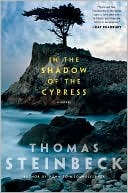
I borrowed this book from my Public Library, with hopes (encouraged by the jacket flap info) of having an interesting story and presentation.
I was disappointed.
The story is in two parts, with the historical segment of finding artifacts near the Pacific Grove Chinese community in 1906. The interest, consternation and subsequent handling of the items covers the first half of the book. Then is the contemporary story of Charles (Luke) Lucas who stumbles upon some of the 1906 information and begins his own quest to learn more.
Thomas Steinbeck is an articulate wordsmith. More than 80% of the first segment is narration. But with narrative writing, I expect to be tantalized by creative prose. It didn't happen. Throughout the book, the prose was very dry and journalistic, with such time-worn phrases as, on page 179, "the rain started to come down in buckets..." (A phrase I've always had trouble imagining). The "main" character, Lucas, was fairly flat. The descriptions of the 1906 Chinese community are intriguing, although they have a NatGeo feel about them.
I also found the early time presentation troublesome. The first section presents journal entries from Dr. Charles Gilbert. The first date is in June 1906 when a fire rages through the Chinese community; but the rambling length gives details about events that happened much earlier (such as the April San Francisco Earthquake)--information I would think a true journal keeper would have imparted closer to the time events occurred. The next Gilbert "entries" are from late in thie year, with more information on artifacts and the Chinese community. Then there's the shift to 1906 and character Dr. Lao-Hong. The events his segment tells are in June 1906--the ones written by Gilbert in November.
I did like the art work and proverbs that separated the different sections
What I perceive as an editorial glitch is the Prologue and Epilogue that aren't part of the story; they are Thomas Steinbeck's comments on his background and life. Both are in first person, and I assumed, when reading the Prologue, I was reading about one of the book's characters. NOT. Perhaps Foreword and Afterword would have been better labels
Why did I keep reading this book when I was so dissatisfied? I kept wanting something to happen. I knew the answer to the slight mystery by page 100, so I wanted the characters, especially Charles Lucas, to come alive and offer me something. (sigh) Oh, well; maybe the next book
Earthquakes
It seems as if the earth is stretching a part. A 5.3 earthquake today in Chile, which had an 8+ event last year and a 6.3 shake in Vanuatu (Click the link to find out where that is). And I wonder if that fiery collapsing volcano in Hawaii was somehow connected.
Here's a site to track the shaky happenings in the US and globally, including information about the bicentennial of the New Madrid Quake that made massive changes in the Central U.S.
Mentioning Vanuatu makes me think of my friend, Linda Leaming's neat video "Where's Bhutan?" Check it out.
March 13, 2011
Meet Beth Hardemann
© 2005 Kae Cheatham All Rights Reserved
Autumn was officially two weeks away, but this season of waning invigorated Beth Hardemann. This past Monday, on Labor Day, she had sweltered at a sidewalk art show in Cheyenne, but now the brisk mountain air promised something new. She smoothed her thick auburn hair, which was as radiant and gold flecked as the distant hills. Her artist's eyes studied those hills, memorizing the frequency of the colors, the flow and sculpted lines. She would try to capture it in pastels in the morning. She locked the blue camper van and headed for the Lamp Creek Rodeo entrance. This event would be quite different from show jumping competitions, mostly because she would be a spectator. As a rider, she had won the New Hampshire junior equitation championship eleven years past. This year she had guided a spirited mare over difficult fences in competitions along the eastern seaboard, her fifth year on the professional circuit. The arena before her was as large as any show field she had been on, but no sweet scents of flowers wafted from around dignitaries' tables, and Beth didn't have to endure the discomfort of a cravat at her neck or the steaminess of her formal blue jacket and tan jodhpurs. She was glad for the change, even though the excitement wouldn't let her dismiss the tough task of contacting her father. She didn't yet have the courage to call him.
"I don't think he'll be pleased to see you," her mother, Joan Hardemann, warned before Beth left Virginia two weeks earlier. "This is foolish! He shut us out of his life years ago…Years ago." Bitterness edged Joan's voice.
Beth had turned away, not certain who had done the shutting out. She hadn't sent her father an invitation to either her high school or college graduations. Yet she recalled earlier times when cards and presents came regularly from him.
"Why don't you call him first?" her stepfather Philip suggested. "Talk to him. Let him know you're--"
"I don't want to only talk to him. I want to see him," Beth said.
"Well, fly out, then…See him. Come home…This idea of driving all that way is totally absurd," Joan insisted. "You'll be in constant danger with your eyes--"
"Mother, I won't be restricted by this. I've always wanted to see the West. Please don't close me out of life so soon." Beth's words were desperate. Joan put her hand to her mouth and nodded.
Philip Hardemann had hugged Beth. His usually controlled voice quivered a bit. "You've never been one to back away from anything."
Rodeo visitors moved in clumps toward the seating area and young children dashed through the crowd. Beth looked back at the parking lot where the camper she had rented in Virginia sat in the third aisle. The phosphorus light, hanging above it, gave it a bronze glow. The speakers around the rodeo grounds stopped blaring music and an energetic voice announced the beginning of the Lamp Creek Rodeo. Banners on tall poles bobbed as a mounted color guard and equestrian team circled the arena.
Beth started toward an open seat on the second row when a calling voice stopped her: "Hey, Sean! Waldham!"
Beth spun toward the call, stunned. Two young men waved to each other. And one of them, Beth thought, is a Waldham. She watched, fascinated, as they shook hands, pushed back their hats, talked. In their twenties, one was tall with thick copper-colored hair and a smiling face. Could he be a cousin? Uncle? Perhaps a half brother about whom she didn't know. Behind her, the crowd became hushed as the opening strains of the national anthem were sung by a thin female voice. People around her joined in. Beth studied the young man with red hair as the two removed their hats but continued to talk. When the song ended, he slapped the shoulder of the other and started away.
A child, who had frozen in her tracks near Beth when the anthem started, began to dash away. Beth stopped her. "That fellow, the red-haired one there." Beth pointed. "Do you know who he is?"
"Gee!" The girl's eyes were bright. "That's Skip Matthews! He's gonna be in the national finals this year almost for certain! Best calf roper around!"
The girl ran on and Beth quickly spotted the other young man as he walked toward the bleachers. He carried his chocolate-colored hat; his hair was brown. He looked up, his dark eyes meeting hers. Handsome, with a direct gaze, a smattering of freckles, square jawed; a smile came to her face before she noticed the calculating study he made of her. She turned away, flushed. His look was not familial interest. How could it be? She hurried along the stairs to lose herself in the crowd. He probably doesn't know he has a relative from Virginia.
While the color guard filed out of the arena and the announcer told about PRCA sanctioning, Beth took a vacant spot between a family with two children and an older couple. Only after she smiled at her neighbors and settled her shoulder bag in her lap did she dare look back for Sean Waldham. Not seeing him, she sighed and got comfortable, even though she was farther up in the seating than she intended.
An arena gate crashed open. A black-eyed Brahman bull writhed into the air, head twisting, back legs kicking high. Beth had watched rodeos on television, fascinated by the danger and excitement. But here, a lot of the spine-jarring action seemed muted, without a ring-side seat given by TV cameras. Nonetheless, she was eager for the crowd and the sounds. Something new. I'm seeing a live rodeo!
By intermission, darkness had settled and the bright lights showed a fine brown haze above the crowd. Most of the children had rushed down to the arena to take part in the calf scramble. Excusing herself, Beth eased by the family and went out to her van for a heavier jacket. She hoped she wouldn't meet Sean Waldham again. Her heart pounded and she looked back toward the rodeo grounds, realizing Sean Waldham's presence meant Pete Waldham could be here, too. She wondered if she would know her father on sight.
With her jacket on, she stopped at the concession stand for a cup of cocoa. Short line. Several people lingered along the counter.
"This is a humdinger for the last weekend of the year. Yes sir," an older man was saying, his voice bright.
Beth looked at him, suddenly interested in each man over fifty. But this person was short and bird-like with wire-rimmed glasses. His black hair, thin on top, was streaked with gray. Nothing like the tall, handsome man in the old photo she had found in a stored-away album.
"Bet seven years ago you never thought the One Way would turn out like this," he continued to a taller, younger man with honey-colored hair.
"It's thriving, that's for certain."
"Better'n folks along the West Valley. They're having problems."
"One cocoa, please," Beth ordered. The dark-haired girl in the booth smiled and quickly fill the request.
"One-fifty, ma'am."
Beth handed out the dollar and fished quarters from her purse as the Styrofoam cup was set before her. Sweet steam wafted to her nose. She held the silver coins out toward the white apron…gray apron…darkness.
No! Panic thudded in her and she blinked against her lost sight. She let go of the two quarters, relieved not to hear them hit the counter top. The clerk's smiling face will reappear at any moment. I'm okay.
Her last spell of blindness had been in a more dangerous situation. She had been in a fast-paced jump off atop the mare Fare Thee Well, sailing over a four-foot high fence at twenty-five miles per hour.
"Ma'am, may I help you?" the clerk asked.
Beth nearly offered an excuse for why she hadn't moved, but a woman's voice answered: "Cocoa, and a couple of those crullers."
Beth eased her right hand along the counter and found her cup, held it, concentrated on the warmth while pressing herself against the booth wall. Blinking, she couldn't believe how long this was lasting. Sounds became vivid around her: "Hey, Tina!" was a call close by; someone running, children laughing. She heard boots on the gravel yard; a man coughed.
"...to put up a dam east of Reed's ranch! Don't know what good that'll do for West Valley folks." The comment came from the older man who had been talking when she first arrived at the booth.
Horses neighed to her left. Against the backdrop of music from the arena speakers, hooves clattered on slats; a bull bellowed, while closer came the scrapes and clinks from in the refreshment stand.
I will not be overwhelmed! The fingernails of her left hand dug into the lip of the counter. She wanted to wipe her face…push aside this darkness.
The air seemed cooler as people around her moved away. She blinked, but the blackness continued even as she heard her own breathing, felt fear weakening her. She licked her lips and turned away from the booth. How far to the entrance: ten paces? Eleven? Maybe another seven or so to the parking area? She wanted to get to her van, but remained rigid beside the booth, dismayed at her ineptness. During her trip, she had intended to learn how to calculate directions, count steps, but her practices trickled away as the miles from Virginia increased.
The light! I'll hear the light. She strained to make out the raspy buzz of the distant fixture suspended over her van. If I can get to that light.
She noticed a faint grayness, a glimmering--saw shadows of passing forms. Beth put her cup on the counter and started forward, aware of the light in the parking area. Her light, she thought; over her van. One, two, three steps…
The light was gone. She froze with no firm wall behind her, no counter top to clutch, nothing by which to orient herself. She put her hand to her head in desperation. Fear churned in her stomach.
"Are you all right, Miss?" a tenor voice asked from her right.
"What? Oh!" She forced her head toward the voice. She smiled.
"Is there something wrong?" the man continued.
She had heard this person at the cocoa stand. "Uh." She turned her head and closed her eyes. "A headache. I was going to my van." She took a tentative step forward. Step number four, then five. Her ankle twisted on the uneven ground. A strong hand grabbed her right forearm.
"I'll walk with you," the man offered.
"Oh. Thank you." His grip was reassuring. "It's just to the blue camper van over there...under the light." She continued to walk, counting the steps at which she had guessed and keeping her left hand to her head. Her escort's other hand was gentle on her back, and she moved with more confidence as the buzz of the light grew louder.
"Here we go," the man said.
With her left hand, Beth felt the front of the van. "I guess a rodeo isn't the best place to get a migraine." She opened her eyes to her dark world. Dear God, please! Don't let this continue.
"No." His tone was hesitant, as if wanting to say more.
She rummaged in her purse for her keys while keeping her leg pressed against the van bumper to mark her progress. Again there was a glimmer of grayness, and she let the man take the key from her, then trembled. What if this isn't my van? What if I've stopped to soon? Or if he's led me someplace else…
Vulnerability had never been her concern, but now she realized how defenseless this ailment could make her. She was in Wyoming and knew no one!
She heard the latch lift...the door open.
"There's a medical unit here at the rodeo. Are you certain you don't need something?" he asked.
"No. I'm fine. Thank you." She clutched her purse and climbed into the van.
"Here. Your keys."
She could see the dim outline of the man and reached toward the clinking sound, felt the cold metal against her palm.
"I'll check back with you in a few minutes if you like, and--"
"That won't be necessary, really. Thank you, again." She gripped the keys and heard him back away. The darker shadow of the door moved and swung closed. She groped for the button on the handle and locked the doors. Several seconds passed before she heard the man walk away; only then did she breathe more easily. She put back her head, closed her eyes and squeezed her fingers on her thighs, wondering how persuasive she had been as a severe headache victim.
It's stress. That's the problem. I haven't had any difficulty during this entire trip until now when I'm worried about meeting my father.
More than half of her spurts of blindness were associated with some point of high emotion. As in May, when Greg had proposed. She and Gregory Blaine, riders on the same circuit, had a storybook meeting, speedy courtship, and an engagement broadcast on society pages from Bar Harbor to Miami. Gregory Blaine--Beth's third romance. The others were mere flashes in the pan, never showing any color. Last month, after the Ambassador's Ball in New York City, Beth told Gregory she was going home for a while because the pressures and excitement of the show jumping had begun to wear at her.
Maybe if I had told Gregory about my eyes, she often thought, I wouldn't have felt so uncomfortable with him.
After returning the engagement ring, she harbored guilt for their failed relationship. Yet he was the one who sulked, made snide remarks when she bested him in a contest, and she had beat him three times before the end of July.
Through her lids, the parking lot light seemed brighter, and Beth slowly opened her eyes. Tears of relief warmed her cheeks as she took in the colors and well-defined lines of her surroundings. She gripped the steering wheel, noting the distance she had come from the concession stand. Maybe sixty yards. Could she have walked that alone? She studied the parking area, wondering which of the four men she saw had been her aide, wondering if she would dare go back into the rodeo. As soon as the thought surfaced she rejected it. She was safe here in her own mobile abode. Go back to the campground, she thought, Now! You have work to do; things to learn.
She fitted the key into the ignition and started the engine, moving slowly--fearful that any movement would jiggle something vital and reverse her clear vision to darkness. But she had to take advantage of the moment. At least she had warning when the problem was coming: the fading colors, the loss of depth perception. Those clues were what she counted on as she drove--those fractions of seconds in which she would turn on the hazard lights, brake and pull to her right. But she was angry with her complacency and naive belief that the miles had dissolved her problem when it had merely hidden in the hills like a canny old bandit.
She turned on the headlights and eased to the entrance road, terrified, yet determined to increase her abilities.
I will count paces, she thought as she drove. I will learn directions. I must learn how to fight panic.
* * * * *
Learn more about Beth in Blood and Bond
March 12, 2011
Notes for the Day - 03-12
I recently posted a sort-of review (positive) of T.J. Stile's book The First Tycoon, and I see where the Pulitzer Prize winner will be a guest on C-Span Book TV in "In Conversation with Paul Hutton" live from the Tucson Festival of the Book on Sunday, March 13, 5:30 EST. C-Span is televising many of the activities during the festival. (12 - 13 March) held on the University of Arizona campus.
=========All the best to my friend Warner B. Bair II who will be part of the Tucson Festival of the Book. Bair will be appearing for a lecture and signing on Saturday March 12, 2011 at 10:45 a.m. His action mystery, Kismet, is a featured selection in The University of Arizona--his alma mater--booth.
=========
Congratulations to David Dalglish on the glowing RedAdept review of A Sliver of Redemption.
Global Thoughts

With the devastating events occurring in Japan and the Pacific Rim, I find it hard to concentrate on my mundane life. I can't imagine the grief of the victims, nor the overwhelming pressure of decision-making on the heads of state and authority service agencies.
There have been so many global tragedies recently, both environmental and man-made, I hope no one becomes inured to the suffering these are bringing to hundreds of thousands of people. This is one planet. We are all one people. Certainly, my life must carry onward, but even my comfort is not immutable. I will have a moment of silence each day for those who aren't so fortunate. I hope you will consider doing the same.
March 11, 2011
Women's History Month #3
 From
Sourcebook
Sojourner Truth (1797-1883): Ain't I A Woman?
From
Sourcebook
Sojourner Truth (1797-1883): Ain't I A Woman?Delivered 1851
Women's Convention, Akron, Ohio
Well, children, where there is so much racket there must be something out of kilter. I think that 'twixt the negroes of the South and the women at the North, all talking about rights, the white men will be in a fix pretty soon. But what's all this here talking about?
That man over there says that women need to be helped into carriages, and lifted over ditches, and to have the best place everywhere. Nobody ever helps me into carriages, or over mud-puddles, or gives me any best place! And ain't I a woman? Look at me! Look at my arm! I have ploughed and planted, and gathered into barns, and no man could head me! And ain't I a woman? I could work as much and eat as much as a man - when I could get it - and bear the lash as well! And ain't I a woman? I have borne thirteen children, and seen most all sold off to slavery, and when I cried out with my mother's grief, none but Jesus heard me! And ain't I a woman?
Then they talk about this thing in the head; what's this they call it? [member of audience whispers, "intellect"] That's it, honey. What's that got to do with women's rights or negroes' rights? If my cup won't hold but a pint, and yours holds a quart, wouldn't you be mean not to let me have my little half measure full?
Then that little man in black there, he says women can't have as much rights as men, 'cause Christ wasn't a woman! Where did your Christ come from? Where did your Christ come from? From God and a woman! Man had nothing to do with Him.
If the first woman God ever made was strong enough to turn the world upside down all alone, these women together ought to be able to turn it back, and get it right side up again! And now they is asking to do it, the men better let them.
Obliged to you for hearing me, and now old Sojourner ain't got nothing more to say.
March 10, 2011
Good With the Bad
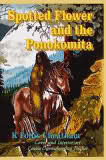
The books have arrived. Yea! On Thursday The UPS truck pulled into my drive, as scheduled, with my copies of the second printing (second edition) of Spotted Flower and the Ponokomita. With the art show season about to kick off, I was truly glad to have these copies...the book sells well at shows.
While I'm smiling over the books, I hear a racing engine and churning from outside. I look out; the UPS truck is half turned in my drive, the driver gunning the engine to force the big vehicle out of a patch of mud. We've had several days of warm temps, and the snow melt has been considerable. My drive looked solid, however. The farrier had been here on Tuesday and had no trouble with mud, or turning--of course he has a much smaller truck
After several attempts, the UPS guy managed to get the truck going up the slope toward the road, back tires still spinning. In some places, the resulting ruts of mud are more than seven inches deep. Time to borrow my neighbor's tractor and try to smooth things out.
March 8, 2011
Drawing Conclusions - Review
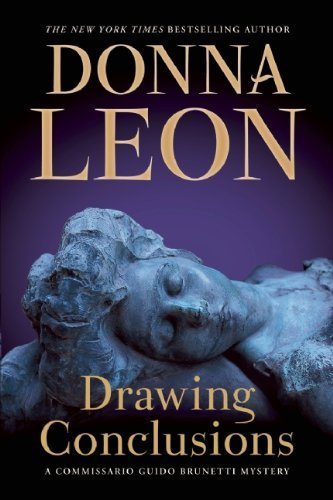
I was given the chance to read the ARC of this mystery, due out in April 2011. It is the 20th Commissario Guido Brunetti novel, the first published in 1992. As an overall tag for what the book is about, I would say Drawing Conclusions is a story of possible crimes.
Guido Brunetti is an interesting, thoughtful person; highly observant, very little escapes his notice, from the color of grass, to faint bruises along the neck of a dead woman, Signora Altavilla. Along with the bruises, he considers the placement of furniture in the woman's apartment as peculiar. These are two of the elements that set him on an examination of Altavilla's life and habits. Coroner Rizzardi states the woman's death was from a heart attack and she was known for heart problems. Brunetti wonders if the heart failure could have been precipitated by an act of violence against her.
He pursues the possibility, aided by his assistant, Inspector Vianello, and by Signorina Elletra, the secretary of his immediate supervisor, who is adept at finding all kinds of info. These characters are ongoing in the series, but I had no trouble picturing them and understanding the relationships Brunetti had with them. The same is true with his wife, Paola, and their two teenage children. I enjoyed the family scenes and the loving sparring between them.
I did find Giuseppe Patta, Brunetti's immediate supervisor, is a bit of a cliché--more interested in appearances than crime solving. But Signorina Elettra's personality is so smartly drawn, I think I could recognize her on a street.
Brunetti's wonderment if a crime had been committed against Signora Altavilla is the focus of the book; his quest for information turns up other elements that are also possible crimes—events dealing with the an estate and a will; a game of swindle among charity cases. Brunetti pondered them all as he tried to decide what really happened to Altavilla.
As he does this, he is still ever observant to his surroundings; descriptions of the Venetian cityscape are nicely presented, and (I haven't been to Venice) I assume they are accurate since Donna Leon has lived in Italy for more than 25 years.
I am, however, dissatisfied with ending; I kept checking to see if there was more and still wonder if the e-galley I rec'd was missing a chapter. Although Brunetti seemed satisfied with what he learned, other possibilities remained as to what happened to Signora Altavilla. Her "guest," who left suddenly, hadn't been ruled out (it was a didn't-seem-to-fit phone call cast suspicion here); I even have unanswered questions about her son. And then there are the missing pictures...
I also wonder why so much information is given in Chapter 1 about Signorina Guisti, who found Altavilla's body. Do we really need to know about her breakup with a guy and what his family was like? I kept waiting for something about that to resurface later in the story; but actually, the signorina is mentioned only a few times after chapter six.
The intricacies of the government agencies and public services was at times funny and interesting. In all, I enjoyed the book, Well crafted with interesting characters.
Whoa! Another Author?
- Kae Cheatham's profile
- 24 followers


